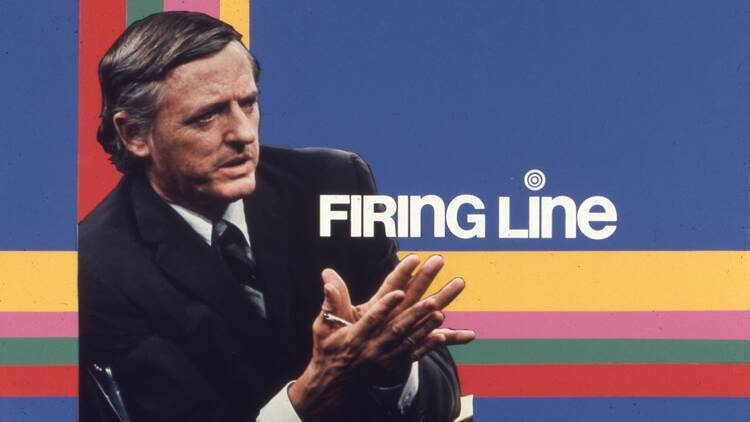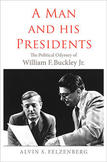Review: The roots of American conservatism
Who was William F. Buckley Jr.? How did he achieve the prominence he did? And what does he mean to the modern conservative movement? Alvin Felzenberg attempts to answer these questions in A Man and His Presidents: The Political Odyssey of William F. Buckley Jr.
Buckley is known to most people today as the founding editor of National Review, the premier conservative magazine and, for a long time, the only prominent conservative magazine in the United States. But as Felzenberg reveals, Buckley was more than a prolific writer: He was the brains and coalescing force of a post-World War II philosophy that gradually became known as “conservatism” and which culminated with the 1980 election of Ronald Reagan as president.
Prior to Buckley’s efforts, U.S. politics was comprised of various shades of “liberal,” which according to Buckley meant not only big government but also a rejection of immovable “ancient truths”—and a belief that democracy could determine societal truths, among other tenets. The New Deal, something Buckley vehemently opposed, had actually been accepted by self-styled conservatives. Even the Republican president Dwight Eisenhower was considered a milquetoast by Buckley for his stance toward the Soviet Union and his refusal to condemn it the way Buckley would have liked. That ardent anti-communism was a stance he never abandoned.
Felzenberg goes into great detail about Buckley’s later friendship with Ronald Reagan, but first, he delves into the life and times of Buckley himself. He begins not with Buckley but with his grandfather and his father’s family and upbringing, tracing Buckley’s elite Catholic roots and involvement in politics and laying the foundation for some of Buckley’s views as he grew older. From there, he describes in detail the young Buckley’s life at boarding school, first in England at the Jesuit-run St. John’s Beaumont, then in the United States as World War II drew closer. Buckley began to express some of his earliest and most controversial opinions even then, such as his support for isolationism prior to the United States’ entry into the war and a notorious dislike for African-Americans and Jews.
But where Buckley really came into his own was at Yale. There he was the chair of the Yale Daily News, participated on the debate team and was a member of the Skull and Bones society, among several other campus groups. As Felzenberg stresses, Buckley “found himself a devout Catholic on a largely secular campus.” His experience at Yale—where he was often at odds with students and administrators—would lead to his controversial book God and Man at Yale, published in 1953.
The fruits of William F. Buckley Jr.'s labor to build not only a philosophical movement but also one that could get people to the polls culminated with Ronald Reagan’s election to the presidency in 1980.
After Yale, Buckley continued to raise his media profile and eventually served as a nexus between right-leaning politicians and the conservative intelligentsia, to the extent it coherently existed in 1950s and 1960s America. Similarly, with the establishment of National Review, Buckley positioned himself as the gatekeeper of U.S. conservatives and ostracized anti-Semites, crackpot conspiracists like the John Birch Society and eventually (although, as he later admitted, slower than he should have) pro-segregation, anti-black racists. His change of heart on Jews and African-Americans came about first from his experience in the army at the tail end of World War II, where he was exposed to a more diverse cast of people than he had ever been before. His deep Catholic faith also guided him past the institutional racism he grew up around.
The fruits of Buckley’s labor to build not only a philosophical movement but also one that could get people to the polls culminated with Ronald Reagan’s election to the presidency in 1980. Buckley had established a friendship with Reagan in the 1960s when he was the governor of California, and that friendship carried into the presidency and thereafter. Buckley was never a formal adviser in any way, but he certainly helped shape Reagan’s worldview and consistently communicated with him while he was in office.
In some ways, Buckley’s political odyssey ended after Reagan’s presidency. The conservative philosophy he helped articulate in the 1950s came full circle and became a movement that arguably either continues today or died with Donald J. Trump’s election. Either way, his mission to entrench his principles in society was a success by any measure. Felzenberg’s book is a wonderful look at Buckley’s life and legacy and makes for excellent reading for ideological friends and foes alike.
This article also appeared in print, under the headline “Standing athwart history,” in the December 10, 2018, issue.











